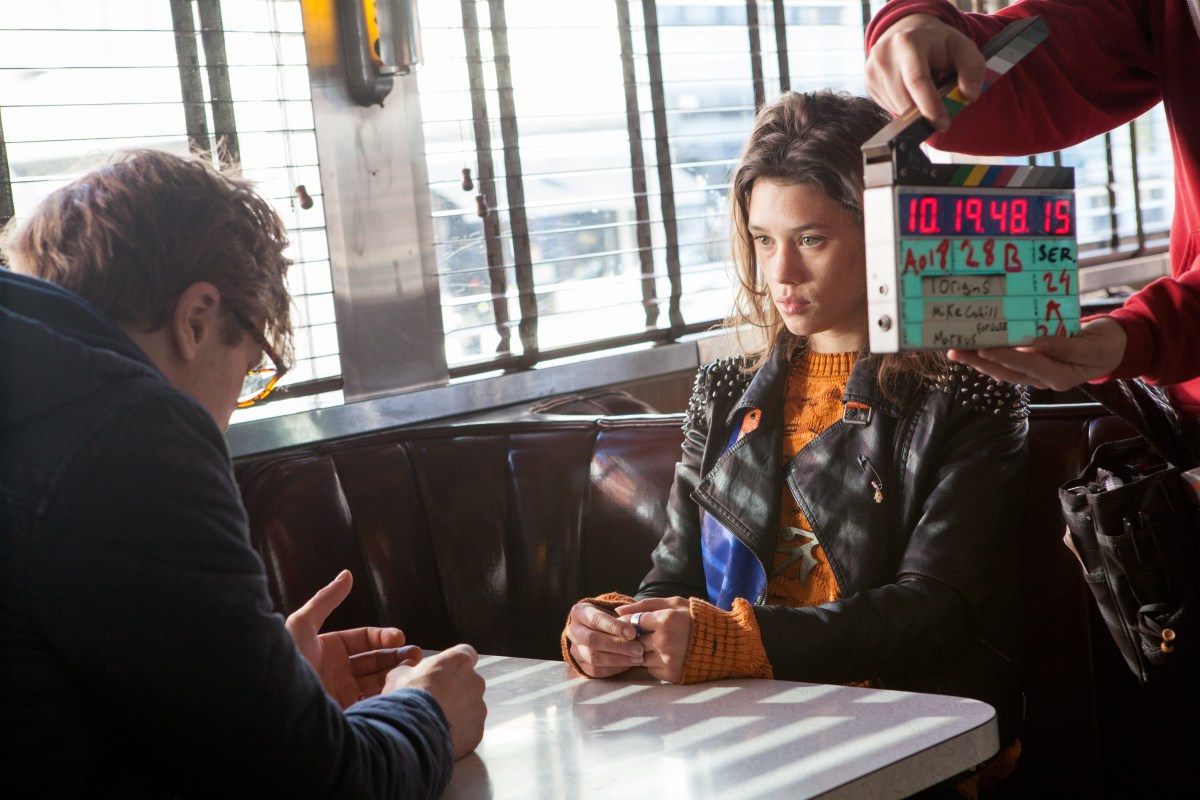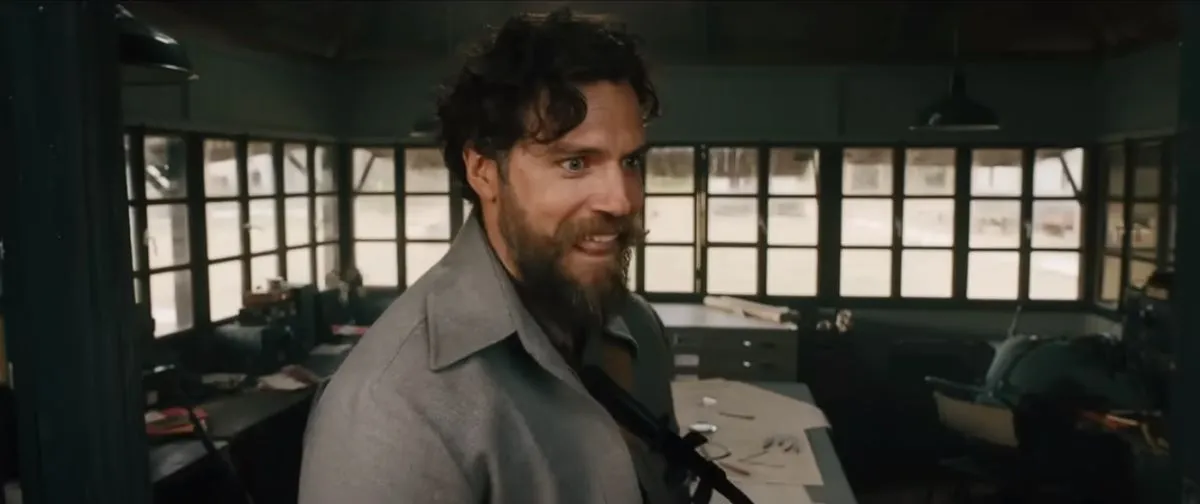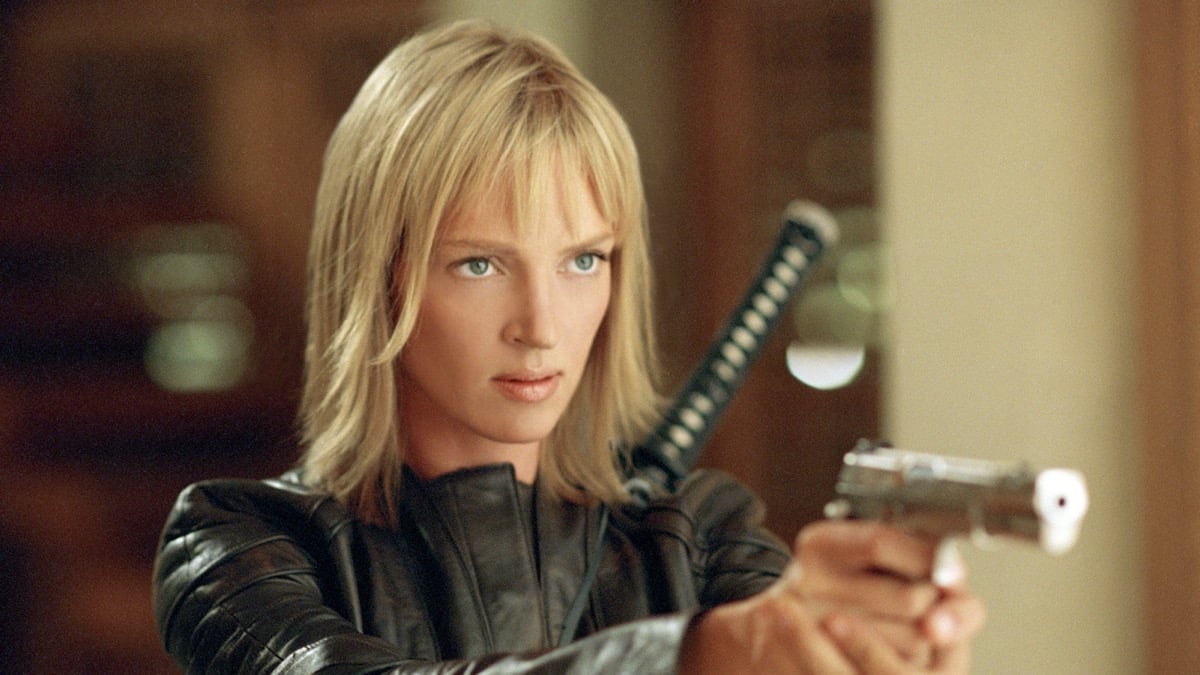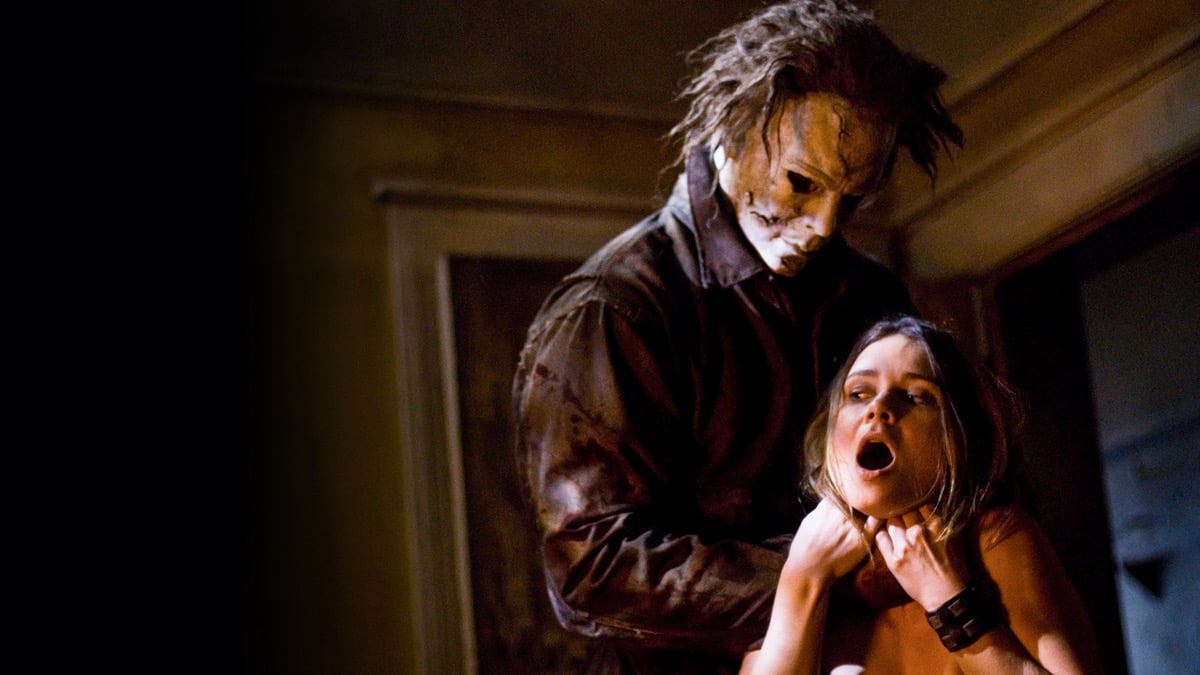The new movie from writer/director Mike Cahill I Origins is out today. I had mixed feelings about its unique approach (The Mary Sue’s review here) but was pretty blown away by the performances, so I was excited to be able to sit down for a roundtable discussion with Cahill and the stars of the film Michael Pitt, Brit Marling, Astrid Bergès-Frisbey, and Steven Yeun.
The interviews weren’t one-on-one. I was joined by four other journalists and the interviews came to us in two groups. First we spoke to Brit Marling and Steven Yeun who play Karen and Kenny respectively. This wasn’t Marling’s first time working with Cahill, and one of the other journalists first asked about their history together.
Marling: Mike and I have known each other since I was 17 and he was 19. We were like children and his early short films that he used to make were the things that–we used to make those things together and it made me want to do this for a living. A lot of deep history. Rich history. It’s amazing to keep growing in the work. You get to a place where you really trust the person. If the director is also your best friend who you’ve known for 15 years, you really trust that person on set, and when they’re giving you notes they’re giving it from a place of really knowing you and how you work best and how to push you and how to protect you, and so it’s been a lovely collaboration. And especially on this crafting Karen together and trying to tell the story of a husband/wife partnership and there’s a real equality. They know each other’s worlds and when he has to go off in search of his former lover to prove something they’re trying to prove scientifically she’s not the traditional wife who’s like “No you can’t leave. You have to stay here and help me with the baby.” No, she’s like “Go. Go do it. I would go do it myself.”
As I mentioned in my review of the film, Karen isn’t simply the sidekick in the film. The story focuses on her partner and husband Dr. Ian Gray, but she’s every bit as important to the story as he is, and it was nice to see a character that didn’t fall into the trope of the nagging wife. I asked Marling how she thought her character shaped Gray and the story.
Marling: You see the three of us grow up and you don’t get that from Sofi. And you see all this time pass between three people that met in a lab that were young people and then 10 years later what goes down for them. I’m just thinking the trajectory that Kenny goes on and how he goes into the business end of science and Karen and Ian end up together and lives just go in strange directions that no one can predict. It was really fun telling the story of watching a mature love and not being – I don’t think the movie makes any judgements on, “Is the first love you have the young love the puppy love?” Is that not as important as the married love you have later or the love [that] is more mature? I think it’s just saying that you love different people at different times in your life for different reasons and that it’s complicated and it’s fun to explore all that.
One thing the film does really well is they put the characters in a believable place in their lives when the film jumps ahead a number of years. The three college friends are all at different places in their lives, but those places are completely believable even without a lot of obvious foreshadowing from Cahill in the early scenes. I asked Marling and Yeun about how the story made the jump so successfully.
Marling: I loved the dinner scene they had. It’s one of my favorite scenes they had because it’s old friends coming together and one of them is making a lot of money and living a total baller life and the other two are working it out. Like she’s pregnant and he’s publishing this book. And you just feel that thing that friends feel who have been with each other working in the same capacity for many years which is they can’t help but measure their lives and compare and contrast with each other. But those people that you’ve known for 10 years are always the people that you can sort of take the piss out of each other and I’ve just come from London so I keep using British words… [Editor’s note: She really did. She even took a video at the end of our interview where she asked us all what we thought the word “numpty” meant.]
Yeun: You know what was really fun? Not thinking about it like in what she’s saying. I really love this industry and this genre of film because you often run into art imitating life or life imitating art. And those scenes where we’re in the lab or we’re in the dinner scene or even when we’re in the home it was fun because I would just throw stuff at you like 10 minutes before we rolled and you would just roll with me. It was so fun like I’d be like how’s the baby and we’d just riff on it for a while and then we’d go straight into the scene. I love that because on the editing room floor I’m sure there’s a lot of my inane stories that I just made up.
Marling: But they were amazing. You know in real times you would just start improvising these monologues and I would just be so drawn in and be like this is better than anything anybody’s done so far and it just all went into forming the scene. It’s all there because you feel like when Kenny comes to the house and they’re breaking apart his database for the first time you feel that those three people have known each other and that he’s probably seen me really wasted and picked me up from a bar and there’s just a richness and in-depthness to the experience.
Yeun: And we got there in such a short amount of time.
Some of the dialogue of the film was improvisation from the actors, which is part of Cahill’s process as one of the other journalists asked.
Marling: I think definitely improv enters in some places. And also in the rehearsal phase mike is amazing at letting actors play in rehearsal and Michael Pitt and I – there’s a scene where we have the argument about him going to India and we just kept playing at it over and over again and sometimes he’d be shouting and sometimes I’d be shouting and sometimes he’d win it and sometimes I’d win it and it’s like – we’d just sit and sort of play and Mike would just sit and take notes and sort of synthesize something out of that and it doesn’t happen for everything but sometimes you’re looking for – trying to get at something and you always feel with mike that he’s trying to get the best version of the scene – however you get there. Even if it means that on the day if a scene isn’t working, you just play and see what comes up or if you stay really true to the script. It’s kind of about finding whatever’s the best version of that moment.
Yeun: I think that’s the joy also in independent film and also in how Mike works which is we hash stuff out with Mike not even there. He has that perfect kind of juxtaposition of knowing how film works and how to edit but also knowing and giving you the freedom and having a grand vision at the same time. You throw everything that you just thought the night before at him and he digests it and he comes back like 5 minutes later and is like this is the scene. It makes you feel like you can do no wrong, which to me as an actor is paramount because I get self-conscious real quick.
Someone asked Yeun about the experience of working in a real lab for the film.
Yeun: It was nice always to have something practical there. I’ve been in a situation like that in college just working in a lab and stuff like that. It’s fun to immerse yourself in that environment. I don’t know I feel like Brit and Mike got to really do the hands on stuff with the pipettes. I wanted to use the pipettes so bad!
Marling: In the sequel it’s all pipettes.
Kenny didn’t get to do much science in the movie, but it was kind of fitting of his character who seemed more interested in the applications–both practical and financial–of scientific research. Yeun talked about how his own background and family helped inform that character.
Yeun: You know what’s funny about my character Kenny is that I think I know him. He’s just the perfect mashup of a wall street guy with someone that went to academia just for altruistic reasons. He’s like my cousin and my other cousin combined. My cousin mikey he’s an i-banker and my other cousin is a social scientist so he’s in a lab and my other cousin is grinding it out on wall street but you see also this inherent – it’s not unique to Asian America but I lived it. There’s a slight competitive nature and Kenny is that guy who went into science because it interested him and he was like this is what I love and he saw everybody just passing him in life. Not in that industry but he’s like my cousin can afford a bmw and he bought a condo and has a kid and it’s all great and Kenny just sees everybody passing him so now he’s geared like let me get that money like how do I get this into money and that’s his obsession at that time. And you know there’s that moment where he finds out that it might not be the truth and he just crumbles and I wanted to play that.
Next we got to talk to Michael Pitt and Astrid Bergès-Frisbey, who play Dr. Ian Gray and Sofi respectively. Their brief, passionate, and tragic romance is what drives the story of the film. Cahill said the character of Gray was based off of Richard Dawkins, but Pitt told us he was inspired by Cahill’s scientist brother Hugh. That really helped inform his acting choices, but also the movie itself.
Pitt: I met Hugh, who I kind of based my character on. And it was amazing that he sort of had science in his family because he’s got a good understanding of science in many different fields – which obviously is really helpful in a film like this. But also we were able to set up a time for me and Brit to go to a Johns Hopkins lab in Baltimore.
Frisbey: Some of the shots of the film are shots of those rehearsals.
Pitt: We went there to workshop it to rehearse, to write stuff and you know, the cool thing about mike is that we brought a camera. We started messing around shooting things and a lot of it’s in the film. That’s where cinema’s going. If you don’t understand that, you know for me, one of the reasons I wanted to work with him is he understands how the cameres work. He understands how to edit. In this day and age you edit anywhere. You edit in your house. The way these cameras are working now they’re not film cameras. If you know how to turn it on, it’s industry standard. Half the time it looks a lot better if you don’t light it.
So these are things that he understands and that’s one of the reasons I wanted to work with him just out of a little bit of frustration working with people who are shooting films now on digital cameras like they are film cameras. Which it’s not…use a film camera. Exploit – be part of the new wave. Be part of what’s interesting about these cameras. It’s a totally different way of working. Now you can do a take that’s 40 minutes.
This was another thing which interested me about I Origins. It really does exploit the modern technology available to filmmakers in a way not a lot of productions do. When I was in college learning filmmaking digital cameras were first really being taken seriously, and although you could release a digital feature, there was always a stigma around it. The equipment now is much higher quality and it’s really opening things up for filmmakers. I asked Pitt what he thought of the current state of the art.
Pitt: We’re here. We’re a long way from The Celebration. Did you ever see The Celebration? That was – when was that? Like 99? That was the first film that was done on dv video where they were like – if you haven’t seen that film I suggest you see it because it will blow your mind. But that was the first one that was a huge success. Right now is the moment because then you were shooting a video and you are blowing it up to crap and now with these new cameras it looks really good.
Here’s the trailer for The Celebration if you want to get a look at early digital cinema.
One of the other journalists had heard a rumor that Frisbey was hesitant to do the project because she had some many others on her plate, but it turned out to be a very different case.
Frisbey: No, it’s not like I was busy I was going to some vacations and that was…I was not really expecting something from the US and I was not feeling the right project for me at that moment and so I received the script a little bit like “I’m going to – let’s read it. I won’t like it anyways.” I wish you could read with your mind clear. And I opened it and after 5 pages I’m like “Oh what is that?” and I couldn’t’ take my eyes off of the script and just call my agent right away and I met Mike the following day on skype and we spent two and a half hours talking on skype.
And then it was like, “I’m leaving tomorrow. I’ll be not really reachable. What do you – do you need anything? Do you need me to put myself on tape or anything because that would be difficult?” He said, “No, no!” We were already talking like schedule and things. We felt like an immediate connection.
Pitt: I feel responsible.
Journalist: Like, you guys knew each other before?
Pitt: Not really. I had met Astrid in London with Steven Graham, who’s a great British actor and I was visiting Steven Graham and I met Astrid for a couple minutes and I was really taken by her and I was actually taken by her eyes. I remember her eyes really stuck in my head. And that was it. It was a very quick meeting and me and mike were working on the script and then it came down to casting. Every girl wanted to do this role.
We were getting calls from everywhere and mike wasn’t happy with the people. I wasn’t happy with what we were getting and in the back of my mind I was thinking, “Astrid would be perfect for this.” But I was kind of trying not to push too much with Mike because you never know but I was really surprised to hear I could tell from the first skype meeting when I talked to him that she was going to get it.
Frisbey: But it was funny was I read these lines and asking myself what are those eyes looking like. I remember I was really in the middle of the desert and they were asking me to put myself on tape or treat it like an audition with them and I was like, “Guys. I need to drive like 10 miles just to talk to you. There’s no wifi where I am. I cannot send you anything.” And finally he just trusted me and saying “we need to just think about things” and you know the Skype quality is not good and so he was like “Can you send me a picture of your eyes?” So I finally send a picture of my eyes to someone and he was like “Oh my god you have the same thing that Sophie has.”
So that makes him even more happy. But like, it’s a pleasure and a comfortable position to be in a place where people trusted you because it’s something that is feeling good because you feel free. You feel like people are not judging you. They just like, they’re happy for you. An intuition. But in the same time it makes you even more nervous because you don’t want to disappoint those people that trusted you like this. Because they couldn’t make it different than just to trust you because you weren’t able to just come or put yourself on tape or whatever.
Pitt and Frisbey also talked about the process of working with Cahill in relation to improvising scenes and lines, and in particular how that helped create one of the more beautiful scenes in the movie where their characters are reunited, but they don’t speak to each other.
Frisbey: It’s funny because someone brought up the scene before and I just remembered that it’s usually you have written scenes and you have silent scenes. But in this case it’s not very often I don’t know maybe you had more scenes than me. I’ve never found a scene that that was there. It was written to “don’t be said.”
Pitt: Like it was a suggestion that I made to Mike, we had worked out that scene. And it was something that – and this is just a testament to who he is as a director. He was so open to trying this and then got so into it. He had wrote this great scene and my suggestion was “So let’s learn this scene. Let’s learn all the lines. And then when we’re there, we don’t say them.” So you cover it in a way where you’re saying everything – and this is cinema. And this is what you can do in cinema that you can’t in a play. And it’s all about the eyes. It’s a really powerful scene.
(image via Fox Searchlight)
Are you following The Mary Sue on Twitter, Facebook, Tumblr, Instagram, & Google +?








